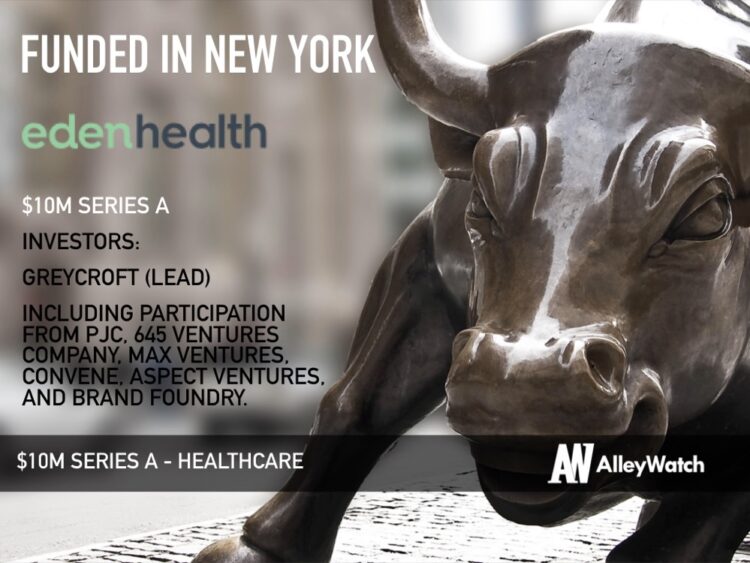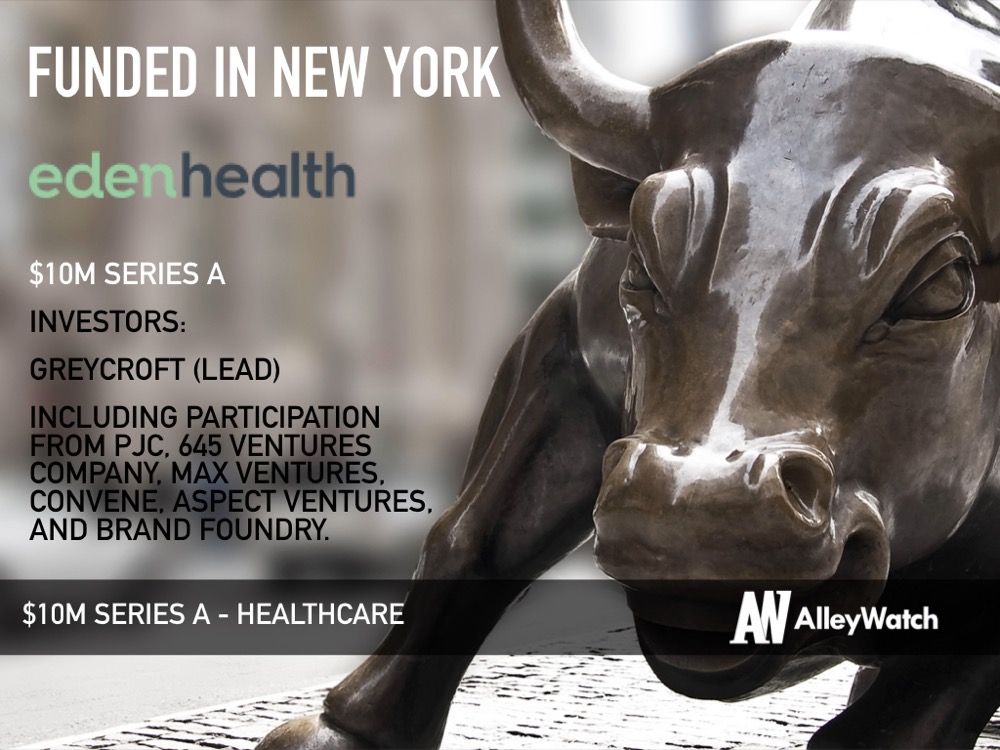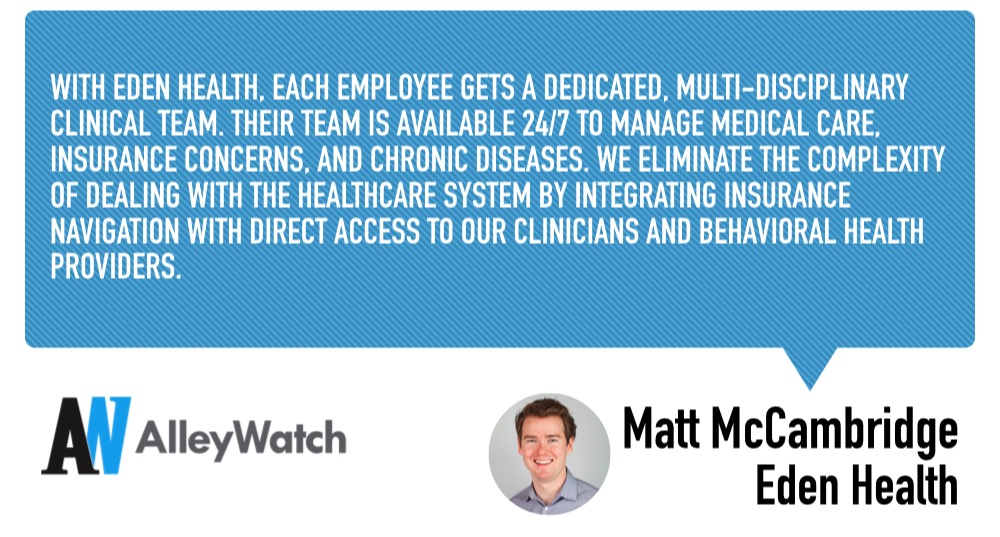Healthcare costs are notoriously expensive for businesses but reducing healthcare costs shouldn’t mean employees should expect lower quality healthcare. Seeking to mitigate the complexity of the healthcare system, Eden Health is a digital health platform that serves as a concierge for healthcare, serving as the first point of contact. Within the platform, employees can access to digital care through a multi-disciplinary clinical team as well as navigate all their healthcare choices.
AlleyWatch spoke to Cofounder and CEO Matt McCambridge about the company, its future plans, the state of the employee healthcare, and the company’s recent funding round, which brings its total raised to $14M across two rounds.
Who were your investors and how much did you raise?
We raised a Series A funding round of $10M led by existing investor Greycroft. Existing investors PJC, 645 Ventures Company, and Max Ventures participated in the round along with new investors Convene, Aspect Ventures, and Brand Foundry.
Tell us about the product or service that Eden Health offers.
We’re a primary care and insurance navigation company for employers. Within minutes of downloading the Eden Health app, employees are partnered with a personal care team that provides 24/7 digital care, same day in-person care at an Eden Health medical office, specialist guidance and referrals, and insurance navigation.
How is Eden Health different?
With Eden Health, each employee gets a dedicated, multi-disciplinary clinical team. Their team is available 24/7 to manage medical care, insurance concerns, and chronic diseases. We eliminate the complexity of dealing with the healthcare system by integrating insurance navigation with direct access to our clinicians and behavioral health providers.
What market does Eden Health target and how big is it?
We work with employers of all sizes across the U.S.
How has the business changed since we spoke after Eden Health’s seed round in 2018?
We’ve added a number of new clients including Emigrant Bank, the American Foundation for Suicide Prevention, and StackOverflow. We’ve also expanded access to many states and will be in all 50 states by the end of 2019.
What’s your business model?
We work within an employer’s existing insurance carrier and benefits program. We contract directly with employers.
 What effect are millennials having on the workplace and healthcare?
What effect are millennials having on the workplace and healthcare?
Consumers are used to real-time access to information, greater cost transparency, and intuitive user experience. Millennials are now better informed, asking more questions and demanding more answers. When it comes to healthcare, millennials want what people of any age want: convenient access to trusted, comprehensive healthcare. By providing employees with a personal, multi-disciplinary clinical team that’s accessible 24/7 via the app, as well as in our clinics, we’re meeting those fundamental healthcare needs.
What factors about your business led your investors to write the check?
We are seeing increasing demand for a more intuitive, efficient way to access healthcare as evidenced by our rapid growth in the last year. Investors are excited about our planned nationwide expansion and soon-to-be-announced partnership with a flexible workplace company.
What are the milestones you plan to achieve in the next six months?
We plan to expand nationwide by the end of 2019. As part of our expansion strategy, we’re investing in a partnership with one of the leading flexible workplace companies to build new clinics across the country.
Who do you admire in the startup world and why?
I really admire clinicians that fully embrace the promise of digital health and are constantly looking for new ways to scale their clinical reach and guide startups in their product development. Their commitment to providing the best possible care for their patients is inspiring, and quite frankly refreshing in an industry that is traditionally so focused on the fee-for-service model.





